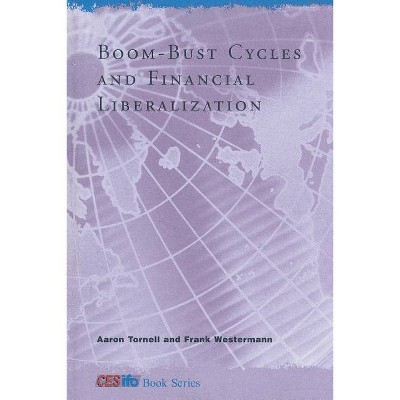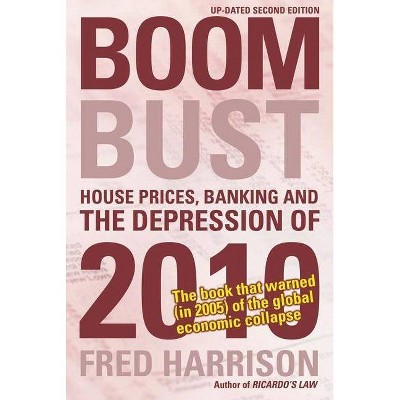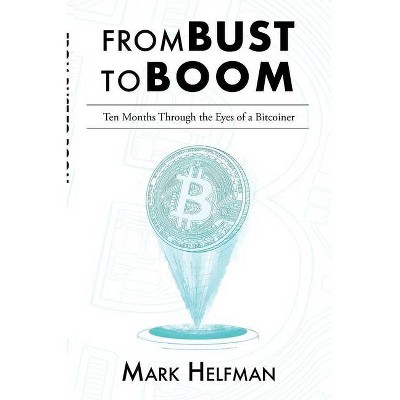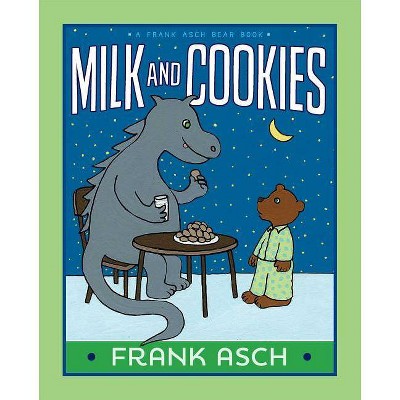Boom-Bust Cycles and Financial Liberalization - (CESifo Book) by Aaron Tornell & Frank Westermann (Paperback)

Similar Products
Products of same category from the store
AllProduct info
<p/><br></br><p><b> About the Book </b></p></br></br>Analysis and evidence of how the factors that give rise to boom-bust cycles in fast-growing developing economies also enhance long-run growth.<p/><br></br><p><b> Book Synopsis </b></p></br></br><p><b>Analysis and evidence of how the factors that give rise to boom-bust cycles in fast-growing developing economies also enhance long-run growth.</b></p><p>The volatility that has hit many middle-income countries (MICs) after liberalizing their financial markets has prompted critics to call for new policies to stabilize these boom-bust cycles. But, as Aaron Tornell and Frank Westermann point out in this book, over the last two decades most of the developing countries that have experienced lending booms and busts have also exhibited the fastest growth among MICs. Countries with more stable credit growth, by contrast, have exhibited, on average, lower growth rates. Factors that contribute to financial fragility thus appear, paradoxically, to be a source of long-run growth as well. Tornell and Westermann analyze boom-bust cycles in the developing world and discuss how these cycles are generated by credit market imperfections. They explain why the financial liberalization that allows countries to overcome imperfections impeding rapid growth also generates the financial fragility that leads to greater volatility and occasional crises. The conceptual framework they present illustrates this linkage and allows Tornell and Westermann to address normative questions regarding liberalization policies.The authors also characterize key macroeconomic regularities observed across MICs, showing that credit markets play a key role not only in boom-bust episodes but in the strong credit channel observed during tranquil times. A theoretical framework is then presented that explains how credit market imperfections can account for these empirical patterns. Finally, Tornell and Westermann provide microeconomic evidence on the credit market imperfections that drive the results of the theoretical framework, finding that asymmetries between tradables and nontradables are key to understanding the patterns in MIC data.</p><p/><br></br><p><b> Review Quotes </b></p></br></br><br>"The authors successfully resolve what has been the most vexing problem in development finance: should middle-income countries liberalize domestic interest rates and free international capital flows in the presence of domestic credit market distortions and moral hazard from government rescue operations? Tornell and Westermann show that financial fragility, and the possibility of major crashes, naturally increases with such financial liberalization. But such liberalization also stimulates growth, albeit unevenly, over the longer term. A must-read for students of development finance."--Ronald I. McKinnon, William D. Eberle Professor of International Economics, Stanford University<br><br>"This book by Tornell and Westermann is an excellent starting point for public-policy debates on the pros and cons of financial liberalization in developing countries. They put forward a provocative argument: welfare costs of financial crises are, on average, outweighed by the benefits of high growth. The authors provide state-of-the-art theoretical analysis and supporting evidence to illustrate, in a novel way, the workings of an unconventional credit channel responsible for boom-bust cycles."--Assaf Razin, Bernard Schwartz Professor of Global Markets, Tel Aviv University, and Friedman Professor of International Economics, Cornell University<br><br>" The authors successfully resolve what has been the most vexing problem in development finance: should middle-income countries liberalize domestic interest rates and free international capital flows in the presence of domestic credit market distortions and moral hazard from government rescue operations? Tornell and Westermann show that financial fragility, and the possibility of major crashes, naturally increases with such financial liberalization. But such liberalization also stimulates growth, albeit unevenly, over the longer term. A must-read for students of development finance." --Ronald I. McKinnon, William D. Eberle Professor of International Economics, Stanford University<br><br>" This book by Tornell and Westermann is an excellent starting point for public-policy debates on the pros and cons of financial liberalization in developing countries. They put forward a provocative argument: welfare costs of financial crises are, on average, outweighed by the benefits of high growth. The authors provide state-of-the-art theoretical analysis and supporting evidence to illustrate, in a novel way, the workings of an unconventional credit channel responsible for boom-bust cycles." --Assaf Razin, Bernard Schwartz Professor of Global Markets, Tel Aviv University, and Friedman Professor of International Economics, Cornell University<br><br>" The authors successfully resolve what has been the most vexing problem in development finance: should middle-income countries liberalize domestic interest rates and free international capital flows in the presence of domestic credit market distortions and moral hazard from government rescue operations? Tornell and Westermann show that financial fragility, and the possibility of major crashes, naturally increases with such financial liberalization. But such liberalization also stimulates growth, albeit unevenly, over the longer term. A must-read for students of development finance." --Ronald I. McKinnon, William D. Eberle Professor of International Economics, Stanford University<br><br>" This book by Tornell and Westermann is an excellent starting point for public-policy debates on the pros and cons of financial liberalization in developing countries. They put forward a provocative argument: welfare costs of financial crises are, on average, outweighed by the benefits of high growth. The authors provide state-of-the-art theoretical analysis and supporting evidence to illustrate, in a novel way, the workings of an unconventional credit channel responsible for boom-bust cycles." --Assaf Razin, Bernard Schwartz Professor of Global Markets, Tel Aviv University, and Friedman Professor of International Economics, Cornell University<br><br>--Assaf Razin, Bernard Schwartz Professor of Global Markets, Tel Aviv University, and Friedman Professor of International Economics, Cornell University<br><br>--Ronald I. McKinnon, William D. Eberle Professor of International Economics, Stanford University<br><p/><br></br><p><b> About the Author </b></p></br></br><p>Aaron Tornell is Professor of Economics at UCLA, an NBER Research Fellow, and a CESifo Research Fellow.</p>
Price History
Price Archive shows prices from various stores, lets you see history and find the cheapest. There is no actual sale on the website. For all support, inquiry and suggestion messages communication@pricearchive.us




















